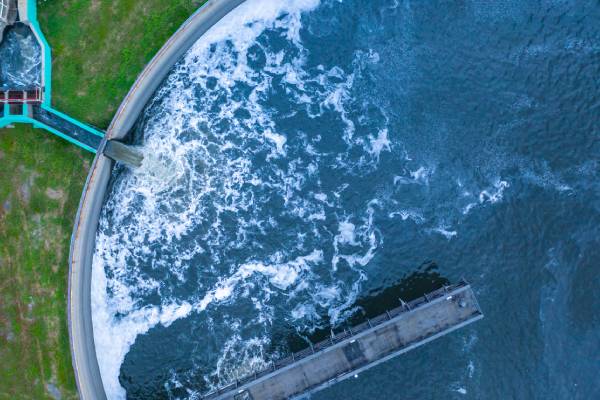Useful Information
European Funds and Loans
EU regional and urban development
-
The LIFE Programme is the EU’s funding instrument for the environment and climate action. The LIFE programme began in 1992 and has co-financed thousands of projects in the field of environmental protection (Water life project)
-
European Investment Bank (EIB) as one of the largest lenders to the global water sector to date, with close to €79 billion for over 1 600 projects, the EIB is making water security and climate change adaptation a priority. Water is the source of life, but also the resource most affected by climate change. (European Investment Bank)
UWWTD and SIIF
Urban Waste Water Treatment Directive
UWWTD provides detailed information about the urban waste water agglomerations, treatment plants, discharged points and sensitive areas. It also provides information about the compliance of each agglomeration and treatment plant, the connection to collecting systems or individual and appropriate systems, the treatment in place and pressure on the environment. Through view and discovery services it allows to select data and display them depending from the criteria chosen. Download and invoke service are also implemented to ease the access to the databases or to ease the reuse of this information by other IT systems. It provides an overview of the urban waste water regulation at EU and national level.
Structured Implementation and Information Framework (SIIF)
The Structured Implementation and Information Framework (SIIF) concept is a ongoing European Commission (Environment Directorate General) pilot project essentially focused on the organisation and management of data in order to enhance the generation of information for policy makers, interested parties and the public at all levels on how legislation is practically implemented. The concept developed is in line with the provisions of the Public Access to Environmental Information and INSPIRE Directives.
Europeean Comission - Directorate General Environment
Evaluation of Reporting Information
Methodology for evaluating information reported in the frame of UWWTD Questionnaire.
Implementation Reports
To assess the level of implementation of the UWWTD, the Commission requests all EU Member States to report detailed information every 2 years at agglomeration and treatment plant level, according to Article 15 of the UWWTD and also on their implementation programmes, as required by Article 17 of the UWWTD.
DGENV website
Since 2001 a Common Implementation Strategy has been in operation, bringing together national experts, stakeholders and the Commission, initially in the implementation of the Water Framework Directive, and later also in the implementation of the Floods Directive. Learn more about the outcomes of this process through the Guidance Documents produced.
European Environment Agency
Access to data and visualisation
Reporting Obligation Database
This Directive concerns the collection, treatment and discharge of urban waste water and the treatment and discharge of waste water from certain industrial sectors, aiming environment protection from water discharges adverse effects. (UWWT Directive fiche).
Under article 15, discharges from urban waste water treatment plants have to be monitored to verify compliance with the emission control standards.
Under article 16, the situation report is requested, aiming to inform the public regularly of the situation, of a given datre, regarding waste water collection and treatments.
Under article 17, National Implementation Programme for UWWT Directive requests data derived from existing national and/or regional information systems for each Member State.
Memorandum Plan Accelerat de Conformare_34356_MN_15.12.2022
Memorandum Plan National de Investitii_Apa si Apa Uzata_20_25450_MA_27.07.2024
National Water and Wastewater Investment Plan
Government Memorandum no. 25450 of 24.07.2024 for the approval of the National Investment Plan in the water/wastewater sector.
Memorandum Annex
Annex to the National Investment Plan
Planned investments in wastewater collection and treatment
Methodology for calculating the load in agglomerations (p.e.)
Methodology for determining pollutant load in human agglomerations
The methodology for determining the pollutant load in human agglomerations aims to provide a
clear and phased approach to establishing the generated load, respectively the size of the agglomeration,
according to the requirements and principles established by GD no. 188/2002 for the approval of norms regarding
conditions for discharging wastewater into the aquatic environment, with subsequent amendments and supplements.
Methodology for establishing agglomerations with over 2000 p.e.
Methodology for establishing agglomeration boundaries
The methodology for establishing agglomerations with over 2,000 population equivalents, developed by World Bank experts within the SIPOCA 588 project.
Design standard 133_2022
Design Standard 133_2022
REGULATION ON THE DESIGN, EXECUTION
AND OPERATION OF WATER SUPPLY AND SEWERAGE SYSTEMS OF LOCALITIES

